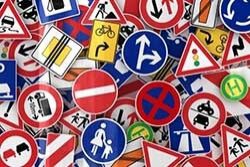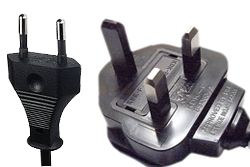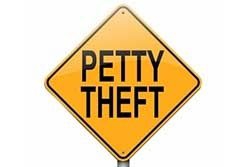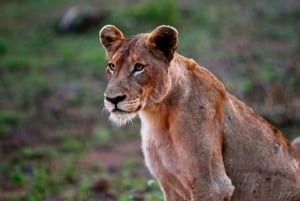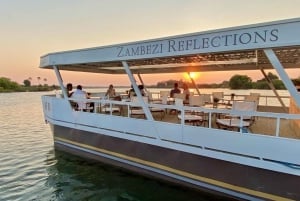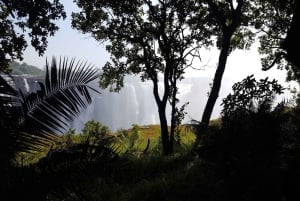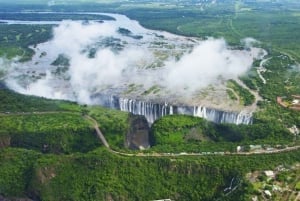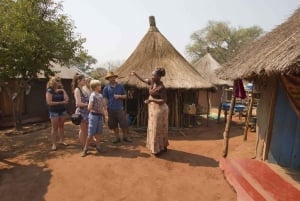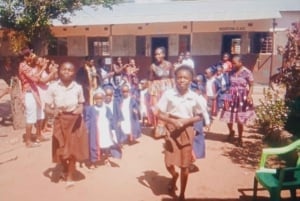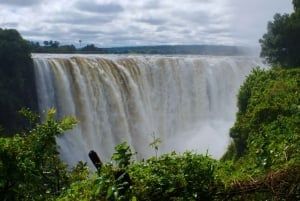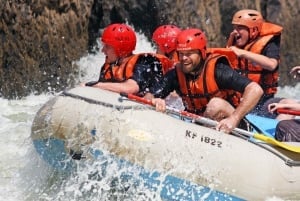Practical Information
Culture
Zambia has a relatively small population of around 15 million people split into over 70 different tribes with the majority of the people living in the larger cities and along the major road links.
Zambian people are friendly and welcoming and appreciate an exchange of greetings before getting down to the nitty gritty of what you need or want. You will find you have to slow down, put your mind in neutral and, if you need to go to a government department for any reason, take a book!
Car Hire
There are many car hire companies in Lusaka and a few in Ndola, offering a range of vehicles. Some offer a flat weekly rate, but most charge a daily rate plus mileage, insurance and fuel. Chauffeur operated vehicles are also available.
Cell Phones
There is cell phone coverage along the major road arteries and in the towns. The more rural areas and game parks do not have coverage but the net is growing every year. The three service providers are Airtel, MTN and Zamtel. International Roaming is available but can be expensive. Remember to turn off Data Access unless needed when roaming.
Departure tax
International flights - US$25
Domestic flights - US$8
This is usually included in airline ticket prices; if not, it is payable at the airport in US dollars.
Transit passengers and children under two years are exempt.
A recently introduced additional airport tax (Airport Development Infrastructure Fee), about K60
(approx $7) per person for international flights, payable in cash on departure.
Driving
In Zambia we drive on the left hand side of the road and observe standard British driving rules, although occasionally the police use their own interpretations of the rules. Your driving licence from your home country is valid in Zambia for up to three months.
Speed limits: Within towns and settlements the speed limit is generally 50 or 60km/h and 100km/h on open roads, but be very conscious of speed signs. Enforcement of speed limits is strict, Zambian police often have speed traps immediately after speed limit signs.
Police Road Blocks are very common in Zambia and generally do not provide much in the way of trouble. However, it is important to be note that an orange traffic cone or a 44-gallon drum in the centre of the road may indicate the presence of a roadblock. There may not always be adequate warning. You should be aware of this and slow down so that you can stop if necessary. Open your window before or as you stop and turn down your music if it is blaring. The official operating the block will appreciate your courtesy. Always carry your passport and driving licence.
If you feel the officials at the roadblock are taking advantage of the fact that you are a tourist in a hire car or borrowed car, phone the car hire company’s help line or the person you have borrowed the car from and ask advice.
Dress
Zambian people are quite conservative in their dress, it has only recently become socially acceptable for a Zambian man to wear shorts. Ladies do not wear shorts and there have been rare occasions where Zambian girls have been attacked by "youths" (young thugs) for wearing tight jeans or revealing cothing. It is adviseable in cities and towns to bear this in mind. If you do need to visit a government building for any reason make sure your are modestly dressed.
Duty Free
400 cigarettes or 500g of tobacco;
One bottle of spirits or one bottle of wine
1oz bottle perfume
Souvenirs may be exported without restriction but game trophies such as tooth, bone, horn, shell, claw, skin, hair, feather or other durable items need export permits.
Electricity
220/24ov at 50Hz
Both 3-pin square design as used in the United Kingdom (Type G) and 2-pin European plug (Type C) can be used.
Fuel
In remote areas of Zambia there are periodic shortages of fuel. If you intend to travel into these areas check with locals and, to be safe, take extra fuel with you in case.
HIV/AIDS
In the 2013 Report on the Global AIDS Epidemic the UNAIDS/WHO Working Group estimated that around 12.7% of the adult population aged 15 or over in Zambia were living with HIV. Exercise normal precautions to avoid exposure to HIV/AIDS.
According to theglobalfund.org Zambia is one of the first countries in sub-Saharan Africa to achieve universal access to ARV treatment, defined as 80 percent coverage of those eligible. More than 90 percent of adults requiring treatment were on ARV therapy in June 2013
Language
There are over 73 dialects spoken in Zambia, but the official language is English. All media and business is in English. Bemba is the next most commonly understood language, followed by Nyanja.
Officials
In Zambia a Government Official, Police Officer, Customs Officer etc, has reached a position of importance in the social hierarchy and they feel they wield great power. A cheerful, polite greeting is always a very good idea. Avoid even mild curse words and profanity, to call someone or something stupid is considered a serious insult. If you feel a bribe is being solicited, bear in mind that the official is not on a brilliant salary and the temptation of a few extra pennies is very great. Try, wherever possible, not to pay a bribe. Always ask for an official receipt. Most officials are decent people, but you do occasionally get a rotten egg.
Public Holidays
1st January – New Year’s Day
12th March – Youth Day
6th April – Good Friday
7th April – Holy Saturday
2nd Monday in April – Easter Monday
1st May – Labour Day
25th May Africa – Freedom Day
1st Monday of July – Hero’s Day
1st Tuesday of July – Unity Day
1st Monday of August – Farmer’s Day
24th October – Independence Day
25th December – Christmas Day
Religion
Predominantly Christian, with Muslim, Hindu and traditional African beliefs.
Safety
Generally, Zambia is very safe, though in the cities and tourist areas, as with most places in the world, there is always a chance of being targeted by muggers or con artists. It is also advisable to remember that the majority of Zambians are poor; displaying your money and valuables openly is not fair to the local people. Secure your valuables, do not leave them lying around where you will just tempt fate. Most hotels and lodges do have room safes. As always, you can reduce most risks by being sensible.
Time
Zambia is two hours ahead of Greenwich Mean Time (GMT+2).
Tipping
When staying in a hotel, lodge or camp or when eating in a restaurant in Zambia, it is a statutory requirement for a 10% service charge to be added to your bill or incorporated within it. This is passed onto the staff so that all employees benefit.
Having said this, it is customary to tip staff a small amount if you feel that service has been up to scratch. In a restaurant this would usually not exceed 10%.
In camps and lodges the managers prefer guests not to tip staff during the course of their stay. If the guest would like to leave a tip at the end of their stay there is usually a tip box at reception or at the bar. This is divided amongst all the staff both front of house and behind the scenes. As a guideline the equivalent of $5 to $10 per guest per day but this is discretionary.
Guides and scouts are not included in the tip box so they can be given a tip separately if you feel they have earned it.
Zambia Tourism Board
Head Office
Lusaka, Zambia
1st Floor Petroda House
Great East Road, Lusaka
Box 30017, Zambia
Tel: (260 211) 229087/ 90.
Fax: (260 211) 225174
ztb@zambiatourism.org.zm
Livingstone
Zambia Tourist Centre,
Box 603432
Tel: (260 213) 321404/5
Telefax: (260 213) 321487
livingstone@zambiatourism.org.zm
">



